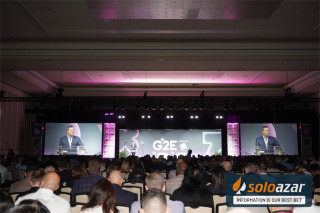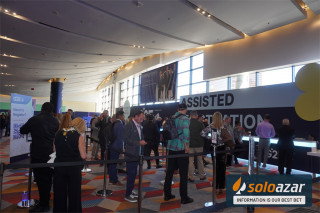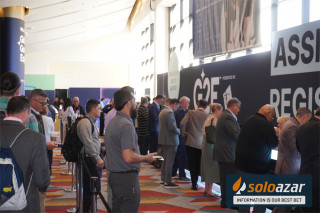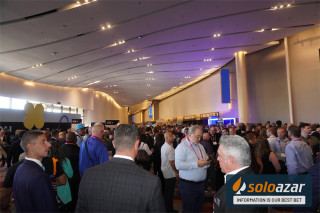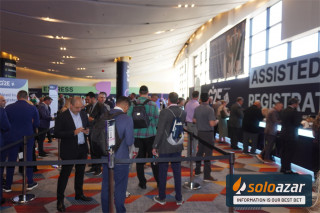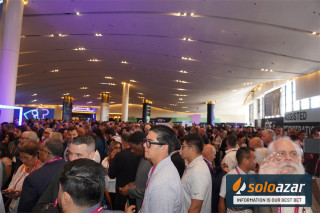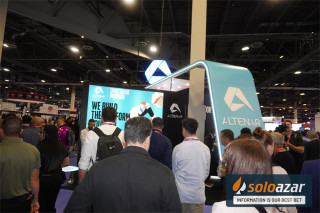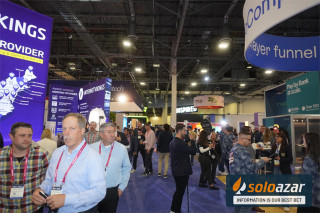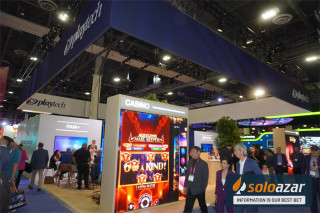Gambling laws and regulation in Peru, by Altenar
Thursday 17 de July 2025 / 12:00
2 minutos de lectura
(Douglas).- Peru’s betting market is undergoing a major transformation following recent regulation, drawing interest from serious operators in the industry. This article provides a comprehensive guide to the key requirements for operating in the country, including licensing, taxation, and regulatory compliance. For those considering entering the Peruvian market, understanding this information is essential to gaining a competitive edge.

A Brief History of Gambling in Peru
Gambling has long been more than a pastime in Peru. From informal card tables in colonial plazas to packed casinos on Lima’s coastline, wagering has threaded itself into the country's cultural and economic flow. What started as casual entertainment has matured into one of Latin America’s most structurally advanced gambling markets, driven by a pragmatic approach to regulation and an appetite for innovation.
The earliest forms of gambling in Peru trace back to the 19th century, with formal lotteries and rudimentary betting games appearing during the Republican era, but it wasn’t until the late 20th century that structured regulation took hold. In 1979, casinos were legalised under Decree-Law No. 22515, marking the first significant step toward a regulated industry. Key reforms followed in the 1990s, most notably Law No. 27153 in 1999, which regulated slot machines and introduced operational standards for casino venues.
Throughout the early 2000s, the land-based sector continued to expand, while online gambling remained largely unregulated but tolerated. Peru’s permissive stance during this period allowed international operators to thrive, albeit in a legal grey area. This leniency persisted until 2022, when policymakers began overhauling the system to bring clarity, fairness, and enforcement to digital betting.
By 2024, Peru had implemented one of the region's most complete national regulatory frameworks for online gambling. Licensing, taxation, player protection, and technical standards now fall under a clearly defined structure overseen by MINCETUR.
Today, public attitudes remain broadly supportive, shaped by the industry’s economic contribution and enhanced consumer protections. What was once informal and fragmented is now formalised, with Peru earning its place as a regional reference point for gambling regulation done right.
Timeline of Events and Legislation
From the legalisation of casinos in the late 20th century to the launch of a nationally regulated online gambling market in 2024, the timeline below highlights the most important milestones that have defined Peru’s path toward becoming a structured and increasingly attractive gambling jurisdiction.
1979: Casinos legalised under Decree Law 22515 for the first time
1990: Structure for gaming tax introduced (Decree No. 608)
1999: Law 27153 regulates slot machines and casino operations
2006: Update of casino oversight and enforcement (Law 28945)
2008: First online gambling operator begins offering services in Peru
2012: Law 29829 modernises the gambling industry and lowers taxes
2013: Unified monitoring system SUCTR launched for slot machines
2022: Online gambling & remote sports betting legalised (Law 31557)
2023: Tax and licensing amendments to 31557/2022 (31806/2023)
2023: Supreme Decree 005/2023 sets tech rules and enforcement
2024: Implementation of the regulated online gambling market
Where Peru’s iGaming Market Stands Now
After years of gradual reform, Peru has stepped confidently into the era of regulated online gambling. What began as a collection of tolerated activities has been replaced by a clear, enforceable structure, transforming the country into a legitimate hotspot for iGaming across Latin America.
The turning point came in 2022 when Peru passed legislation formally regulating online gaming and betting. Since then, a flurry of regulatory developments has turned intention into implementation. As of 2024, licensed operators live under a fully regulated system. Today, both local and international brands are legally permitted to offer online sports betting, casino games, fantasy sports and esports betting to Peruvian players. Land-based gaming also remains well-established, with casinos and slot halls operating under separate but longstanding regulations.
You can read more and have access to the complete report here.
Categoría:Analysis
Tags: Altenar,
País: Isle of Man
Región: EMEA
Event
G2E - Las Vegas 2025
06 de October 2025
CT Interactive on Innovation, Networking, and Market Growth at G2E 2025
(Las Vegas, SoloAzar Exclusive).- The global gaming industry marked G2E’s 25th anniversary with a major gathering in Las Vegas. CT Interactive stood out for its innovative product development and international growth strategy. Account Manager LATAM at CT Interactive, Roberto Muñoz, shared insights on G2E’s importance, emerging trends, and the company’s collaborative expansion efforts.
Thursday 30 Oct 2025 / 12:00
Atlaslive Explored the Future of Gaming in Latin America at Recent G2E 2025
(Las Vegas, SoloAzar Exclusive).- Bruno Almeida, Head of Sales LATAM at Atlaslive, attended G2E for the first time to explore how land-based and online gaming are converging. His experience highlighted key trends shaping the Latin American market, from immersive casino innovations to strategic networking and regulatory insights.
Monday 27 Oct 2025 / 12:00
G2E 2025: Cristian Galarza, ASAP Director Explains the Importance of Attending the Event
(Las Vegas, SoloAzar Exclusive). - After attending the 25th anniversary edition of G2E in Las Vegas, ASAP’s director shares his perspective on the evolution of the industry, driven by digitalization, efficiency, and the creation of international networks that foster new business opportunities.
Tuesday 28 Oct 2025 / 12:00
SUSCRIBIRSE
Para suscribirse a nuestro newsletter, complete sus datos
Reciba todo el contenido más reciente en su correo electrónico varias veces al mes.



















